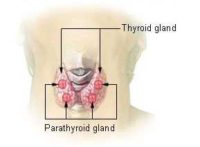Author Interviews, Cancer Research, J&J-Janssen, Leukemia / 17.05.2018
DARZALEX® (daratumumab) Approved for Newly Diagnosed Patients with Multiple Myeloma who are Transplant Ineligible
MedicalResearch.com Interview with:
Andrzej Jakubowiak, MD, PhD
Professor of Medicine
Director, Myeloma Program
University of Chicago
MedicalResearch.com: What is the background for this announcement? Would you briefly explain what is meant by multiple myeloma?
Response: DARZALEX (daratumumab) in combination with VELCADE (bortezomib), melphalan and prednisone - VMP - received U.S. FDA approval for the treatment of patients with newly diagnosed multiple myeloma who are ineligible for autologous stem cell transplant (ASCT). With this most recent approval, DARZALEX is now the first monoclonal antibody approved for newly diagnosed patients with this disease.
Multiple myeloma is an incurable blood cancer that occurs when malignant plasma cells grow uncontrollably in the bone marrow. Despite the introduction of new medicines over the last decade, which has led to significant improvements in outcomes for patients with multiple myeloma, multiple myeloma remains an incurable disease. In 2018, it is estimated that 30,700 people will be diagnosed and 12,770 will die from the disease in the United States.
(more…)











